
What is Right to Information [Right to Information Wiki]
The Right to Information ( RTI) is an act of the Parliament of India which sets out the rules and procedures regarding citizens' right to information. It replaced the former Freedom of Information Act, 2002.
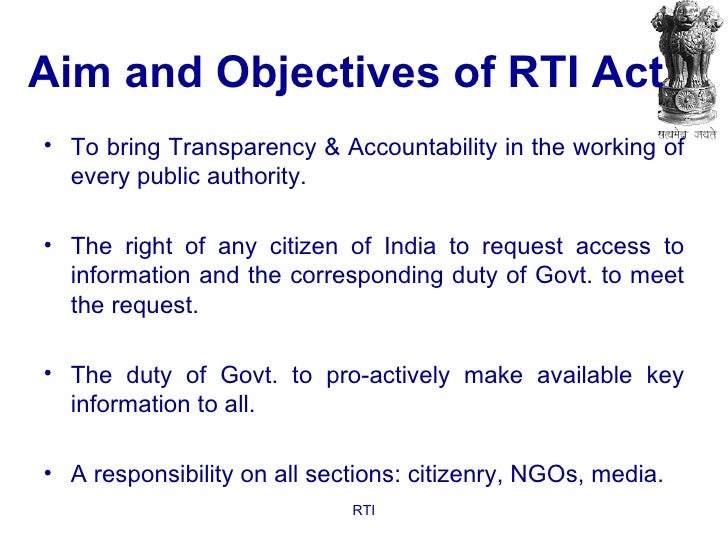
Rti Act
RTI Guides and Handbooks; Compendium of Best Practises on RTI (Vol-I) Compilation of OMs & Notifications on RTI; Guidelines for suo motu disclosure under RTI Act, 2005 by Central Govt. Guidelines for suo motu disclosure under RTI Act, 2005 by State Govt. Reports on National workshop 2014; Reports on Regional workshop 2014; Filing online RTI.
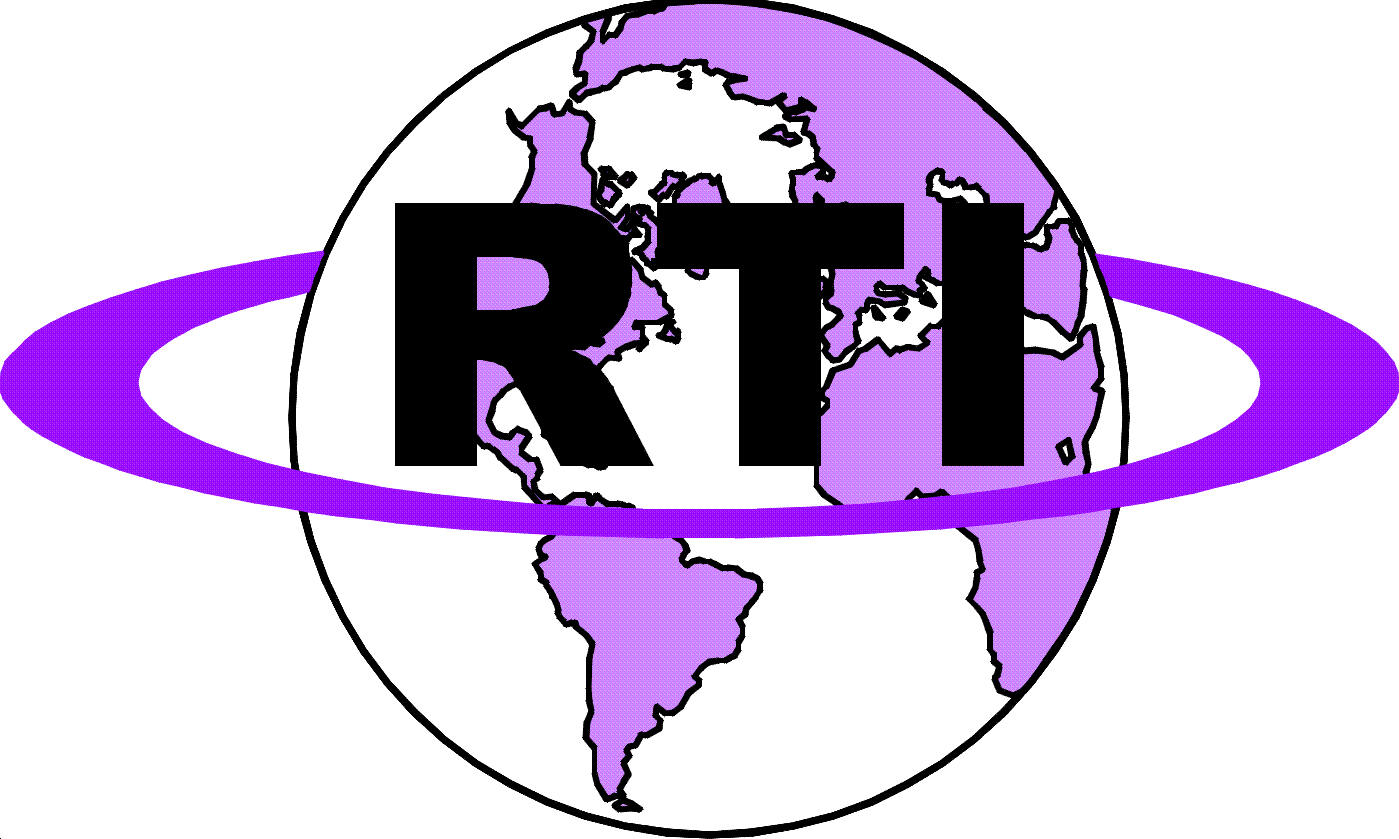
social work Right To Information Act (RTI)
The RTI Act allows any citizen to make requests for access to data, documents, and other information in the government's possession. India's RTI Act has been commonly cited as among the.
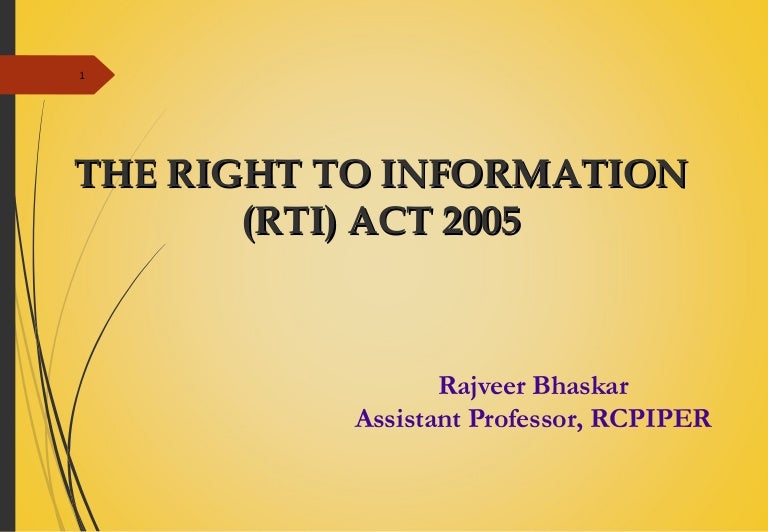
RTI Act 2005
What is Right to Information Act. Right to Information empowers every citizen to seek any information from the Government, inspect any Government documents and seek certified photocopies or samples thereof. You must know the basics of the Act before you are able to file an RTI. We have narrated the basic details for you.

RTI Act amendment Former information commissioners, activists criticise government move APN Live
This article aims to discuss the critical aspects of the Right to Information Act of 2005 including the Act's objectives, the right to information and the responsibility of public authorities, the establishment of Information Commissions, their powers and activities, appeals and penalties, etc. This article has been published by Sneha Mahawar.

Right to Information Act (RTI) How it Works IndiaFilings
This Act may be called the Right to Information Act, 2005. (2) It extends to the whole of India except the State of Jammu and Kashmir. (3) The provisions of sub-section () of section 4, sub-sections () of section 5, sections 12, 13, 15,16, 24 , 27 and 28 shall come into force at once, and the remaining provisions of this Act shall come into.

MCQs on RTI Act 2005
December 16, 2022 12:30 am | Updated 12:09 pm IST Sonikka Loganathan COMMents SHARE READ LATER People at an RTI office in Bengaluru. File | Photo Credit: The Hindu The Right to Information.

Disclosure of interest in information sought under RTI Act necessary to establish bonafides of
Find Rti stock images in HD and millions of other royalty-free stock photos, 3D objects, illustrations and vectors in the Shutterstock collection. Thousands of new, high-quality pictures added every day.. Entrance and the building of Central Information Commission set up under the Right to Information Act 2005. New Delhi - 16 Apr, 2020.

RTI Surprise MP Man Receives 40,000Page Reply, Documents Filled His Car Inventiva
The RTI Act has over-riding effect vis-à-vis other laws inasmuch as the provisions of the RTI Act would have effect notwithstanding anything inconsistent therewith contained in the Official Secrets Act, 1923, and any other law for the time being in force or in any instrument having effect by virtue of any law other than the RTI Act.
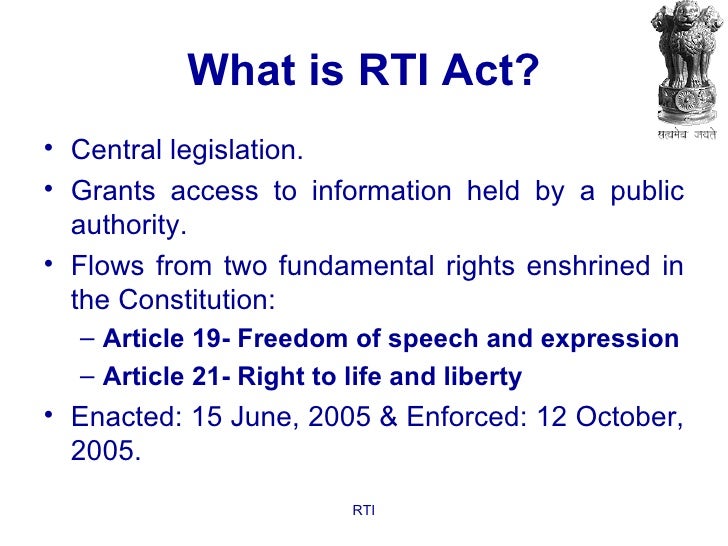
Rti Act
The RTI Act 2005 provides effective access to information for citizens of India, which is under the control of the public authorities.. Any reproduction of image or images embodied in such microfilm (whether enlarged or not); and. d) Any other material produced by a computer or any other device; e) The Second Schedule of the RTI Act exempts.

Right to Information Act, 2005 An Analysis
Dec 23, 2020, 18:59 IST. Expanded as Right To Information Act, RTI means that any Indian citizen can request any information (which is supposed to be public knowledge) from the offices and.
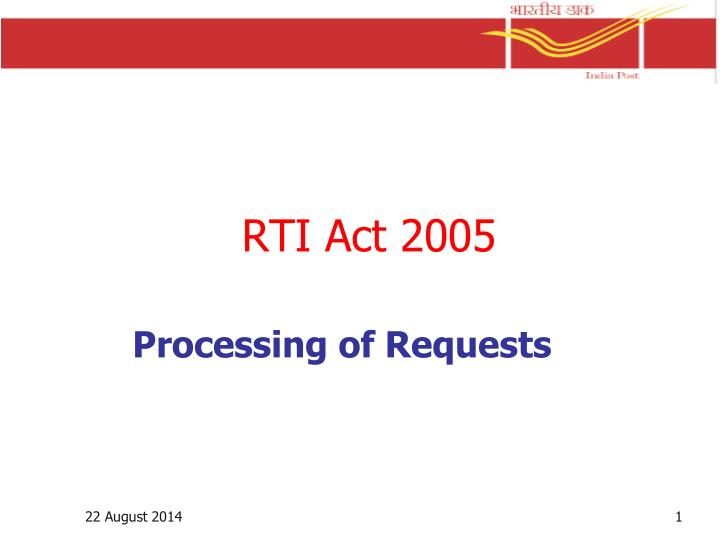
PPT RTI Act 2005 PowerPoint Presentation, free download ID3411913
RTI Act 2005. RTI Online. RTI Disclosure. An Act to provide for setting out the practical regime of right to information for citizens to secure access to information under the control of public authorities, in order to promote transparency and accountability in the working of every public authority, the constitution of a Central Information.

Things to know about RTI Act in India
A. The Right to Information Act, 2005 is the latest and current act of right to information in India. It was enacted by the Parliament of India on 15 June 2005 and came into effect on 12 October 2005. The Act replaced the erstwhile Freedom of Information Act, 2002, and aims to provide a framework for citizens to secure access to information.
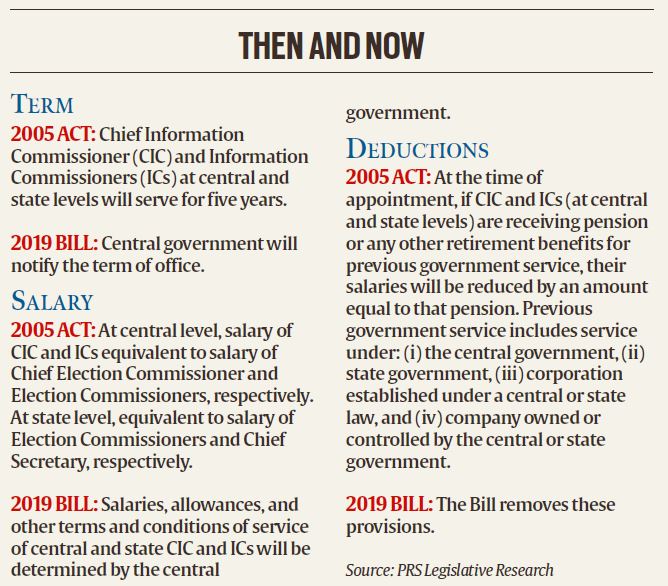
Explained What has changed in RTI Act? Why are Opposition parties protesting? Explained News
The RTI Act is regarded as one of the most successful laws of independent India. It has given ordinary citizens the confidence and the right to ask questions of government authorities. According to estimates, nearly 60 lakh applications are being filed every year. It is used by citizens as well as the media.

RTI success stories to be made available for public?
The RTI Act aims to bring about transparency in the functioning of public autorities, contain corruption and hold Governments and their instrumentalities accountable to people. It creates a process for providing information to people. The RTI Act places a duty on officers to provide information to people both proactively and upon request.

Officials misusing Section 8 of RTI Act to deny information The Leaflet
The article discusses important provisions of the Right to Information Act, 2005 including objectives of the Act, right to information and obligations of public authorities, constitution of Information Commissions, powers and functions of Information Commissions, appeal and penalties etc. This article has been published by Sneha Mahawar.